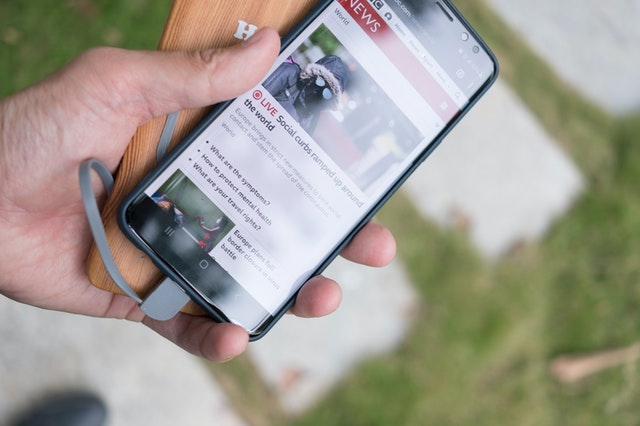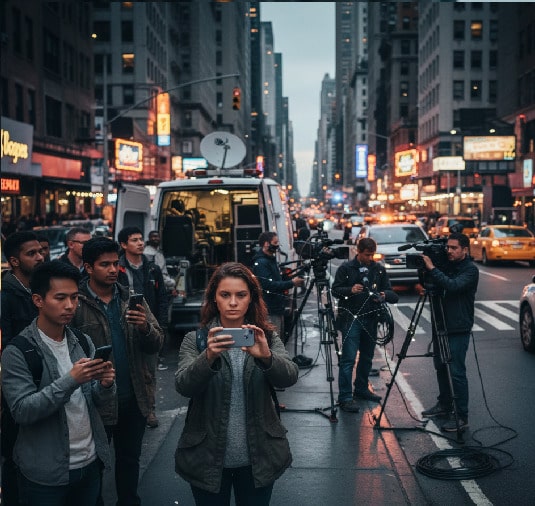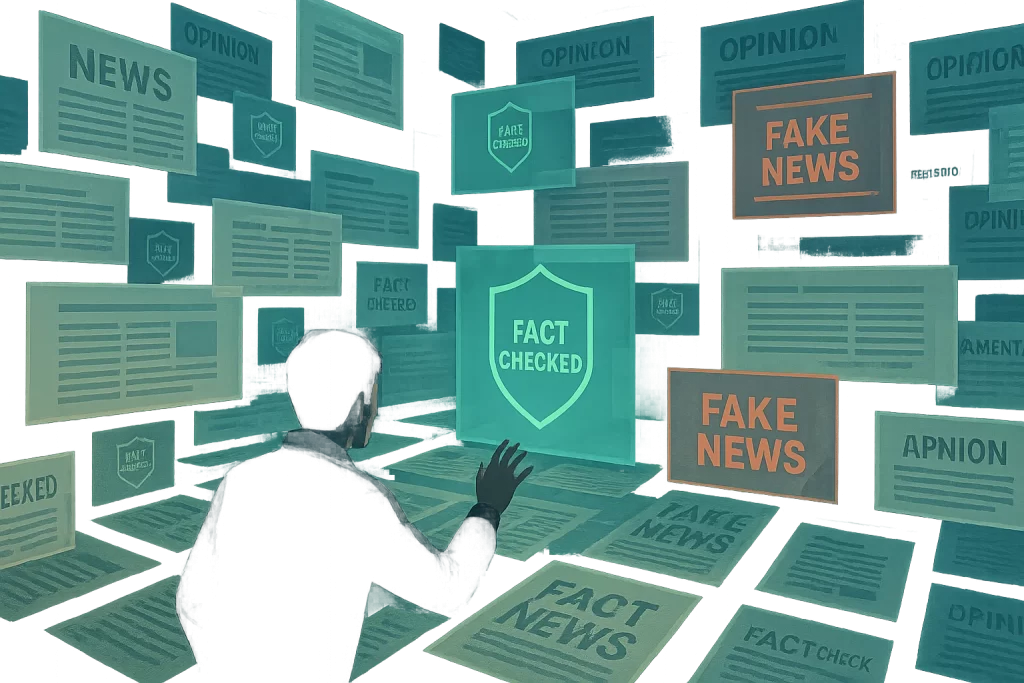
Students used to spend hours in dusty libraries or pacing through crowded campus bookstores, searching for that one textbook they absolutely had to have. According to The Best Colleges website, the average college textbook can cost more than $200, and students often spend over $1,200 per year on required course materials. For many learners, that’s a cruel joke. Thankfully, things are changing. A quiet revolution is underway, driven by technology that helps students track down digital versions of academic material with ease.
Enter the age of the pdf finder. These tools like ABookSearch are becoming common lifelines for students around the globe. Instead of wandering aimlessly through online forums or questionable file-sharing sites, learners can now use search aggregators that crawl the web for textbooks, study guides, and academic articles. Some of these tools even compare prices, suggest alternate formats, or point to freely available versions hosted by universities and open-access platforms.
If you think this sounds like academic alchemy, you’re not the only one. Jamie, a philosophy major in one of the top universities, once joked that he’d trade his soul for a free copy of a Hegel anthology. These days, though, Jamie uses comparison search engines to find legally available editions or fairly priced rentals. He still complains about Heidegger, but at least his bank account is happy.
What Are PDF Finder Tools and Why They Matter
At their core, PDF finder tools are search engines specialized in locating documents across the internet. They index file formats that big search engines often overlook. For students, this means fewer hours wasted digging through irrelevant search results and more time actually learning. These tools scan university repositories, digital libraries, publisher pages, and public archives to deliver results that matter. For additional guidance on finding and evaluating educational resources, students can also check out consumer education and empowerment resources, which provide tutorials and tips for smart digital learning.
Some tools are simple and free. Others come with price comparison features. Imagine searching for a required textbook and instantly seeing options: a free public domain edition, a used paperback for cheap, or a short-term rental you can download. For cash-strapped students, this kind of access can be life-changing.
The Impact on Textbook Affordability
Let’s be honest, academic publishing has never been gentle on student wallets. Every semester seems to bring a new wave of outrageous textbook prices. Elena, a math major, once borrowed a math textbook for her entire degree because buying even a used copy is way out of her budget. Now, she tells me she often checks aggregator sites before deciding whether to rent, buy, or skip a book entirely.
Comparison search engines have altered the economics of textbook access. They give students clarity about what’s out there, where to find it, and how much it costs. No more guessing whether that $250 hardcover is your only option. In many cases, learners find older editions that cover nearly the same material at a fraction of the price. Other times, they discover that the author has released a free version under an open license, living happily ever after in a university archive somewhere.
It’s worth noting that these tools aren’t perfect. Some won’t have every book you need. Others might lead you to a site that doesn’t make clear whether a download is legal. That’s where a bit of savvy comes in. If a tool directs you to a university repository or a well-known digital library, chances are the material is ethically shared. If you’re led to shady corners of the web, proceed with caution.
Digital Textbook Trends in the News
News outlets have started paying attention to this shift. Headlines in education sections often highlight how technology is democratizing knowledge. Stories focus on innovative edtech startups partnering with libraries to expand access, and on universities that provide free textbooks through open educational resources (OER). Reporters also discuss how digital access can bridge gaps for students in remote or underserved communities.
One widely shared trend is the push by some institutions to adopt “inclusive access” programs. These initiatives make digital textbooks available to all enrolled students at a reduced cost as part of tuition. Critics argue about choice and price transparency, but supporters say this model gives every student access from day one. Whether these programs will become mainstream remains to be seen, but they’re another sign that the digital textbook landscape is evolving fast.
Legal and Ethical Considerations
Before you hit download on every PDF link you see, let’s pause. There’s a big difference between legally available digital copies and pirated material. Sharing copyrighted books without permission is against the law and undermines authors and publishers who invest time and effort into creating educational content.
The best practice is to use tools that point to legitimate sources, like open-access repositories or publisher-authorized downloads. Many authors now share preprints of their research or older editions of textbooks under Creative Commons licenses. These are golden. They’re free to use and legal to share.
Ethically speaking, it’s also about fairness. When you choose legal sources, you support a system that rewards creators and ensures more high-quality content gets made. It’s like tipping your favorite barista even when the coffee was already great. You help sustain the magic.
Conclusion
The rise of digital textbook search tools is a hopeful story for learners everywhere. With smart use of aggregated search engines and an eye toward legality, students can find what they need without breaking the bank. As educational technology continues to grow, academic content becomes more democratic, less intimidating, and more possible to access. The next time you’re staring down a syllabus with a $300 book requirement, remember there are tools and trends out there that can help. A pdf finder might just be your unexpected academic hero.






 In a
In a  Currently, the platform that will give
Currently, the platform that will give  Early this month, Instagram enhanced its Reels feature with the addition of Song Lyrics display for each Reel clip, which enhances music promotion at Instagram. There’s no denying that music is a key element of growth in social media platforms as demonstrated by TikTok when it added the Billboard trending chart last September 2023.
Early this month, Instagram enhanced its Reels feature with the addition of Song Lyrics display for each Reel clip, which enhances music promotion at Instagram. There’s no denying that music is a key element of growth in social media platforms as demonstrated by TikTok when it added the Billboard trending chart last September 2023. Reels now enable music artists using the IG app, to add song lyrics texts on the screen. Doing so expands music engagements with fans and followers.
Reels now enable music artists using the IG app, to add song lyrics texts on the screen. Doing so expands music engagements with fans and followers.
 Newsrooms move fast. Phones ring. Alerts pop up. Reporters rush in and out. Producers scan scripts while editors juggle deadlines. In that kind of environment, it’s easy to overlook something basic: the floor. But clean floors matter more than most people think, and regular tile and grout cleaning helps ensure they support how a newsroom functions, how people feel at work, and how the organization is perceived by visitors and viewers. And in modern media spaces, where transparency and credibility are under constant scrutiny, details count.
Newsrooms move fast. Phones ring. Alerts pop up. Reporters rush in and out. Producers scan scripts while editors juggle deadlines. In that kind of environment, it’s easy to overlook something basic: the floor. But clean floors matter more than most people think, and regular tile and grout cleaning helps ensure they support how a newsroom functions, how people feel at work, and how the organization is perceived by visitors and viewers. And in modern media spaces, where transparency and credibility are under constant scrutiny, details count. Most how-to guides fall apart because they wander. They start too broad, add too many side notes, or bury the key points. News writing avoids that by answering the questions fast, staying tight, and keeping one main thread from top to bottom.
Most how-to guides fall apart because they wander. They start too broad, add too many side notes, or bury the key points. News writing avoids that by answering the questions fast, staying tight, and keeping one main thread from top to bottom. 




 Some fruits and vegetables that are safe for humans can be harmful to dogs. While strawberries are a sweet, juicy treat many pets love, not every snack is as safe as it seems. Dog owners nationwide are growing more curious—and cautious—about what they feed their furry companions.
Some fruits and vegetables that are safe for humans can be harmful to dogs. While strawberries are a sweet, juicy treat many pets love, not every snack is as safe as it seems. Dog owners nationwide are growing more curious—and cautious—about what they feed their furry companions.

 Major news sources have created documentaries and feature pieces focusing into the science and background of cold plunging. Often exploring personal stories, professional interviews, and scientific investigations, these pieces give a whole picture of the practice.
Major news sources have created documentaries and feature pieces focusing into the science and background of cold plunging. Often exploring personal stories, professional interviews, and scientific investigations, these pieces give a whole picture of the practice. Beauty and organization go hand in hand. A well-organized vanity case is more than just a container for cosmetics; it’s a personal hub of confidence, convenience, and style. Whether traveling or at home, having your beauty essentials in one place can save time and add a touch of luxury to your daily routine. The right vanity case stores your makeup and reflects your taste.
Beauty and organization go hand in hand. A well-organized vanity case is more than just a container for cosmetics; it’s a personal hub of confidence, convenience, and style. Whether traveling or at home, having your beauty essentials in one place can save time and add a touch of luxury to your daily routine. The right vanity case stores your makeup and reflects your taste.
 The rise of news media has played a crucial role in highlighting various niche industries. One such industry that has gained attention is aluminum trailer restoration. This craft involves repairing and rejuvenating old trailers, bringing them back to their former glory. The synergy between news media and this niche has created a wave of interest and appreciation for the craftsmanship involved in aluminum trailer restoration.
The rise of news media has played a crucial role in highlighting various niche industries. One such industry that has gained attention is aluminum trailer restoration. This craft involves repairing and rejuvenating old trailers, bringing them back to their former glory. The synergy between news media and this niche has created a wave of interest and appreciation for the craftsmanship involved in aluminum trailer restoration.
 Large screens, cordless microphones, and a multi-language music collection are typical features of these rooms’ cutting-edge audiovisual technology. Fried rice and cup noodles are just a few of the food and drink options at some of these karaoke joints. You may also find themed rooms to pick from.
Large screens, cordless microphones, and a multi-language music collection are typical features of these rooms’ cutting-edge audiovisual technology. Fried rice and cup noodles are just a few of the food and drink options at some of these karaoke joints. You may also find themed rooms to pick from.

 In an age where information flows ceaselessly, the role of Privin and media in investigative journalism emerges as a beacon of truth and accountability. Media outlets, armed with resources and determination, board stories that lie beneath the surface, often hidden from the public eye. This in-depth exploration is not merely a pursuit of news; it’s a quest for truth and justice.
In an age where information flows ceaselessly, the role of Privin and media in investigative journalism emerges as a beacon of truth and accountability. Media outlets, armed with resources and determination, board stories that lie beneath the surface, often hidden from the public eye. This in-depth exploration is not merely a pursuit of news; it’s a quest for truth and justice.





 Media dynamics have undergone profound transformations. While the emergence of social media platforms initially prompted many to ring the death knell for traditional media, the reality proved more nuanced. Instead of competing, these mediums have found a harmonious, mutually beneficial relationship.
Media dynamics have undergone profound transformations. While the emergence of social media platforms initially prompted many to ring the death knell for traditional media, the reality proved more nuanced. Instead of competing, these mediums have found a harmonious, mutually beneficial relationship.

